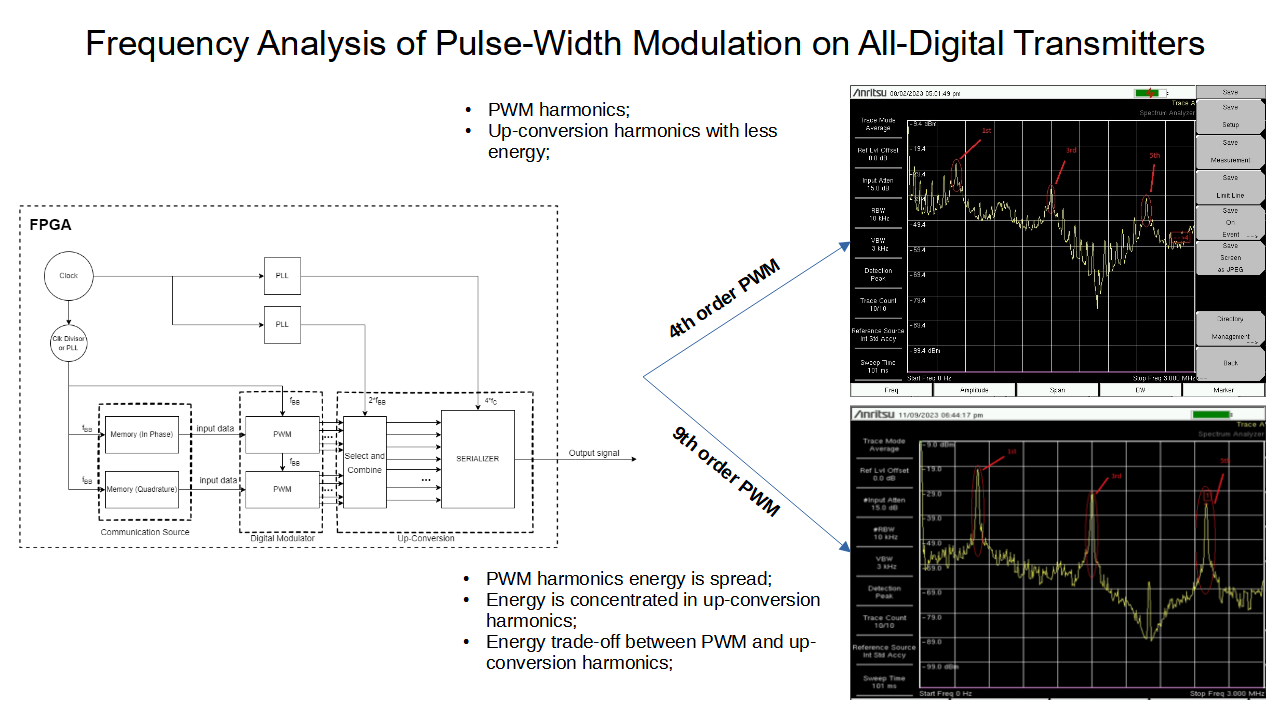Frequency Analysis of Pulse-Width Modulation on All-Digital Transmitters
DOI:
https://doi.org/10.14209/jcis.2024.17Keywords:
all-digital transmitters, pulse-width modulation, up-conversion, return-to-zero, FPGAAbstract
This work investigates the frequency spectrum in the modulator and up-conversion outputs of a generic all-digital transmitter architecture. Considering the modulator is implemented as a pulse-width modulation (PWM), it is verified that this up-conversion process introduces a series of impulses resembling the spectrum of a return-to-zero (RZ) wave in addition to the PWM impulses. Simulations show that there is a minimum order of PWM where the impulses introduced are almost unnoticed, thus their influence is not distinguished from random background noise. To verify it experimentally, an all-digital transmitter is designed on a field-programmable gate array. Experimental results show that reducing power from PWM harmonics leads to a power increase in the RZ harmonics, and vice-versa. These harmonics power present an energy trade-off relation, a novelty demonstrated in this paper. Finally, but not least, it is observed that the process of filtering the carrier wave out causes a considerable amount of power to be lost.
Downloads

Downloads
Published
How to Cite
Issue
Section
License
Copyright (c) 2024 Vinícius Corrêa Figueira, Tiago Ogioni Costalonga, Victor Fernandes, Jorge Virgilio de Almeida, Tadeu Nagashima Ferreira, Vanessa Przybylski Ribeiro Magri (Author)

This work is licensed under a Creative Commons Attribution-NonCommercial 4.0 International License.
Authors who publish in this journal agree to the following terms:
- Authors retain copyright and grant the journal right of first publication with the work simultaneously licensed under a CC BY-NC 4.0 (Attribution-NonCommercial 4.0 International) that allows others to share the work with an acknowledgment of the work's authorship and initial publication in this journal.
- Authors can enter into separate, additional contractual arrangements for the non-exclusive distribution of the journal's published version of the work (e.g., post it to an institutional repository or publish it in a book), with an acknowledgment of its initial publication in this journal.
- Authors are permitted and encouraged to post their work online (e.g., in institutional repositories or on their website) before and during the submission process, as it can lead to productive exchanges, as well as earlier and greater citation of published work (See The Effect of Open Access).
___________
Accepted 2024-10-01
Published 2024-10-12


